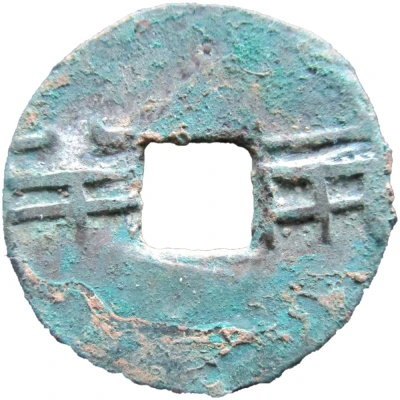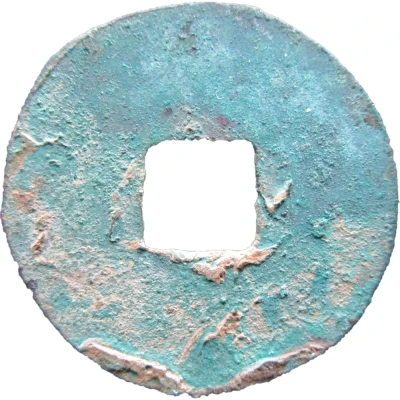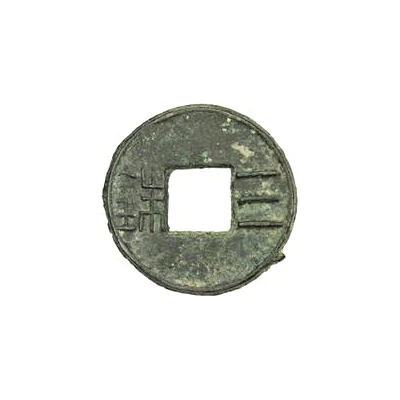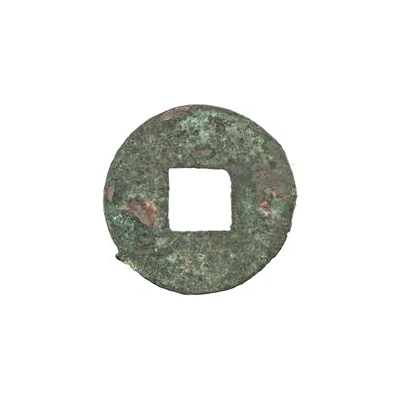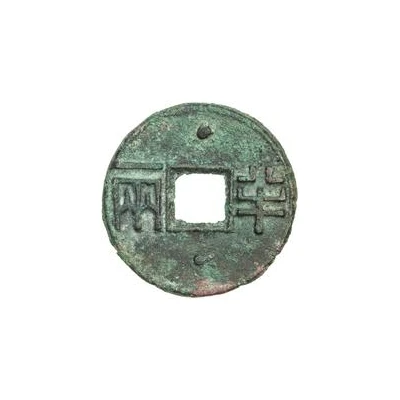
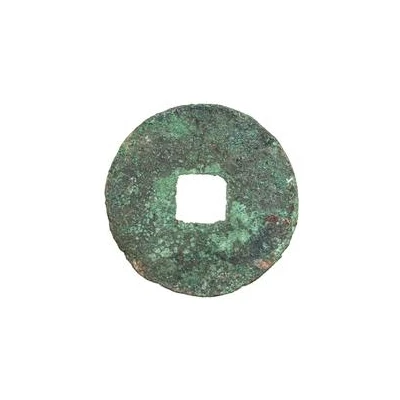

© Stephen Album Rare Coins
½ Liang Type 5; with dots 136 BC - 118 BC
| Bronze | 3.11 g | 24 mm |
| Issuer | China (ancient) |
|---|---|
| Period | Western Han Dynasty (202 BC - 8 BC) |
| Type | Standard circulation coin |
| Years | 136 BC - 118 BC |
| Value | ½ Liang |
| Currency | Liang (300-118 BC) |
| Composition | Bronze |
| Weight | 3.11 g |
| Diameter | 24 mm |
| Shape | Round with a square hole |
| Technique | Cast |
| Demonetized | Yes |
| Updated | 2024-10-09 |
| Numista | N#210352 |
|---|---|
| Rarity index | 92% |
Reverse
Blank (uniface).
Edge
Plain
Comment
This type has an M-like Liang.Five main types exist:
- Type 1: Weight around 8 grams.
- Type 2: Weight around 5 grams.
- Type 3: Weight less than 2 grams.
- Type 4: Weight less than (or around) 3 grams; without rims.
- Type 5: Weight less than (or around) 3 grams; with rims.
Interesting fact
One interesting fact about the Standard circulation coin ½ Liang (Type 5; with dots) from ancient China is that it was used as a form of currency during the Han Dynasty, which was a time of significant economic growth and cultural development in China. The coin's design, featuring a square hole in the center and a rim with dots, was meant to prevent counterfeiting and ensure the coin's authenticity. Despite its small size and relatively low value, the ½ Liang coin played an important role in facilitating trade and commerce during this period.
